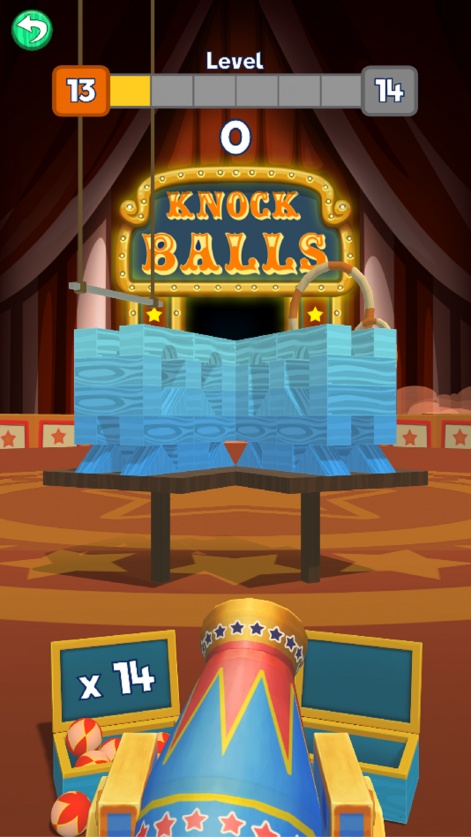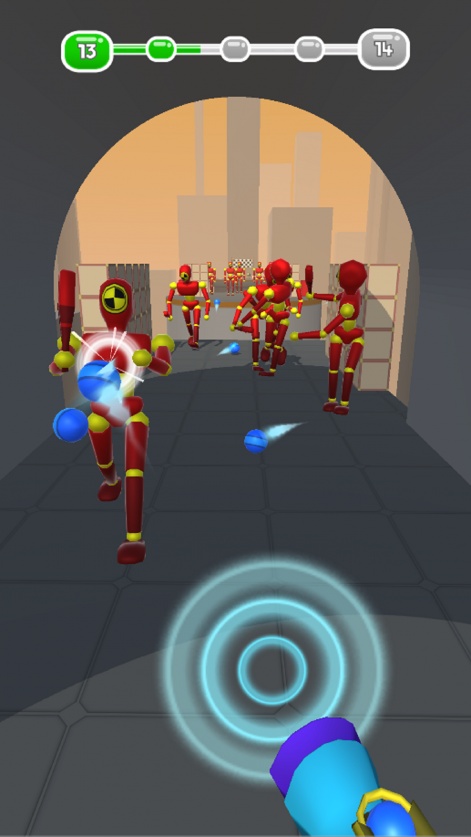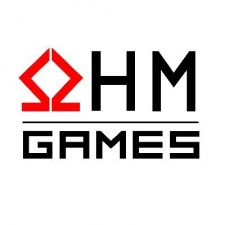There's no doubting that hyper-casual publisher Voodoo's knowledge and expertise has played a big part in its success, but if it didn't have games to publish, it wouldn't have achieved such great heights.
Following on from our chat with the publisher on its approach to game development and publishing, we spoke to some of its partner studios to find out more about the development process and what Voodoo provides to the people it works with.
This time around, we spoke to OHM Games co-founders Paul Evrard and Arthur Duverne about working with Voodoo and creating successful games.
PocketGamer.biz: How did your company first get started?
Paul Evrard & Arthur Duverne: We have four core owners of OHM Games - Paul (President), Arthur (COO), Matthieu (Artistic Director), and Thibaud (CTO). Paul and Arthur met during higher education in 2007 and became good friends. Then Thibaud, Matthieu and Paul met at another company, Kobojo, in 2012.
At the end of the year 2017, Paul and Arthur began to want to set up a mobile video game studio with the goal of producing a hyper-casual game, without yet being able to put the genre on the concept. Research was done into the feasibility of the project and soon after, Thibaud and Matthieu joined the team.
We decided to work on this mobile video game prototype as a side project first, to identify whether the team had the necessary dynamic to set up a fun game to play for our friends, family, and of course, ourselves.
Over the following months we realised we liked working together and were effective. We also felt that the hyper-casual sector had a lot of hidden potential so we officially created the company in March 2018.

What drew you to developing hyper-casual games?
As a studio, we really liked what working on hyper-casual games really meant. We knew that this was a growing sector in which it is possible to start without huge resources or investments. We started with an almost cost-free video game studio.
Hyper-casual has the advantage that the data is at the center of the decision. We quickly identified that time, an essential commodity in any type of activity, could be streamlined to its maximum, and that decisions would be simplified with the right tools and the right partners.
With prototypes sometimes produced in less than a week, we knew that with the necessary rigor, we could never really get bored and would have to constantly reinvent ourselves. These were a few things that very quickly convinced us that the team was made to work in hyper-casual and that our efforts could pay off pretty quickly.
How did your partnership with Voodoo first begin?
At the beginning of 2018 we started with hyper-causal. During this time we spoke with many different publishers, but we liked Voodoo the most and felt they aligned well with our approach. We officially created the studio and the next day started working with them.
Voodoo really helps to get developers going as fast as possible, to focus on the game and not get sidelined with wasted objectives.Paul Evrard & Arthur Duverne
What support has Voodoo offered when it comes to developing your games?
In March 2018 we developed and launched our first game, but it wasn't a huge success. However, it was a very important learning process for us.
Through working with Voodoo, we learnt how best to prototype and launch and learn from our mistakes. In the last two years we have published three hits with Voodoo, and five games in total. We have developed around 55-60 prototypes and have tested all of them with Voodoo.
With regards to other publishers, Voodoo had a very specific process that trusted in data and was quick. Other publishers were more objective in their handling of prototypes, but were not really testing with data in mind. OHM games are very data driven.
With Voodoo, we can test rapidly and gain concrete results, gaining a solid understanding about users. Voodoo really helps to get developers going as fast as possible, to focus on the game and not get sidelined with wasted objectives.
What made your hits different to other titles?
Our first hit was called Knock Balls, which launched in September 2018. It has a simplicity that can be found in hyper-casual; based on a coconut shy-style game, simple to play, simple to understand, simple to develop. It had a strong retention, due to its realtime physics and its possibilities, excellent replayability as the outcome is always different even on the same level, the feeling of randomness and the skillbase gameplay, etc.
We work well with destruction mechanics - Push'em All, a game where players push 'zombies' off walkways, uses physical characters that are very fun to play around with. Knock'em All used a shooter mechanic, but with the same core mechanics with falling, destruction, and a sense of power that is very specific to their brand.

The physics mechanic was part of the game from the start. For Knock Balls, we wanted to make players feel like they were doing real damage to props. (This physics-based destruction creates a sense of diversity but also unpredictability). With Knock'em All the characters are based on ragdoll physics and always behave differently, so it feels more real.
We are really proud that all our games have extra long session lengths for hyper-casual - up to 30 minutes, with 10-12 minutes being the norm. We attribute this success to the use of physics and unpredictability in the game.
We know as well that hyper-causal is a really competitive market, so copying can be an issue. We try to innovate and make our games handmade, not procedurally generated.
How has Voodoo helped grow your business overall?
Voodoo allows us to allocate 100% of our time to develop fun games for all types of players! They take care of all the steps related to monetization as well as user acquisition to let us focus on what we do best.
Voodoo also allows us to have an expert eye on our prototypes, and to steer iterations on our potential hits or prototypes, according to current market trends and best practices they can see on other games or on the market in general.
Testing is always important, even if the game will not be a success, as every failure comes with a lot of learnings and brings you closer to your next hit.Paul Evrard & Arthur Duverne
What do you think is the key to making a successful hyper-casual game?
We believe that with the right tools and the right methodology, it is possible to take a few shortcuts to the first success:
- Benchmark as much as possible to identify trends and best practices that you can adapt for your own games.
- Test continuously and as quickly as possible by forcing ourselves to deliver fun and functional prototypes in a few days.
- Clearly define some of the expected metrics and at which level to trigger an iteration or not.
- Don't hesitate to kill a prototype to develop a better one, and don't fall into the trap of iterating too long on the same prototype that shows too little promise of success.
- Try to innovate and don't only copy gameplays or past hits.
- Remain humble, constantly questioning ourselves: we can be at the top for a couple of months and work during a year, or more, to just get a prototype that shows potential again.
How important is testing to ensuring your game will be a success?
Testing is not only important, it is the key to our successes. With Voodoo they have a process which focuses on data so we can develop prototypes and test them quickly.
Testing is always important, even if the game will not be a success, as every failure comes with a lot of learnings and brings you closer to your next hit.
What are your goals as a developer for the next 12 months?
After those three hits with Voodoo, we want to continue exploring types of gameplay that are not the most common on mobile at the moment. We're getting stronger technically speaking, and are able to offer more impressive and satisfying player experiences.
More than anything else, we want to continue to evolve a little against market trends to focus on video games that offer escape and relaxation to the more than 150 million players who have trusted us so far!
We have fantastic prototypes in development and hope to continue contributing to the hyper-casual with our own little touch.





















